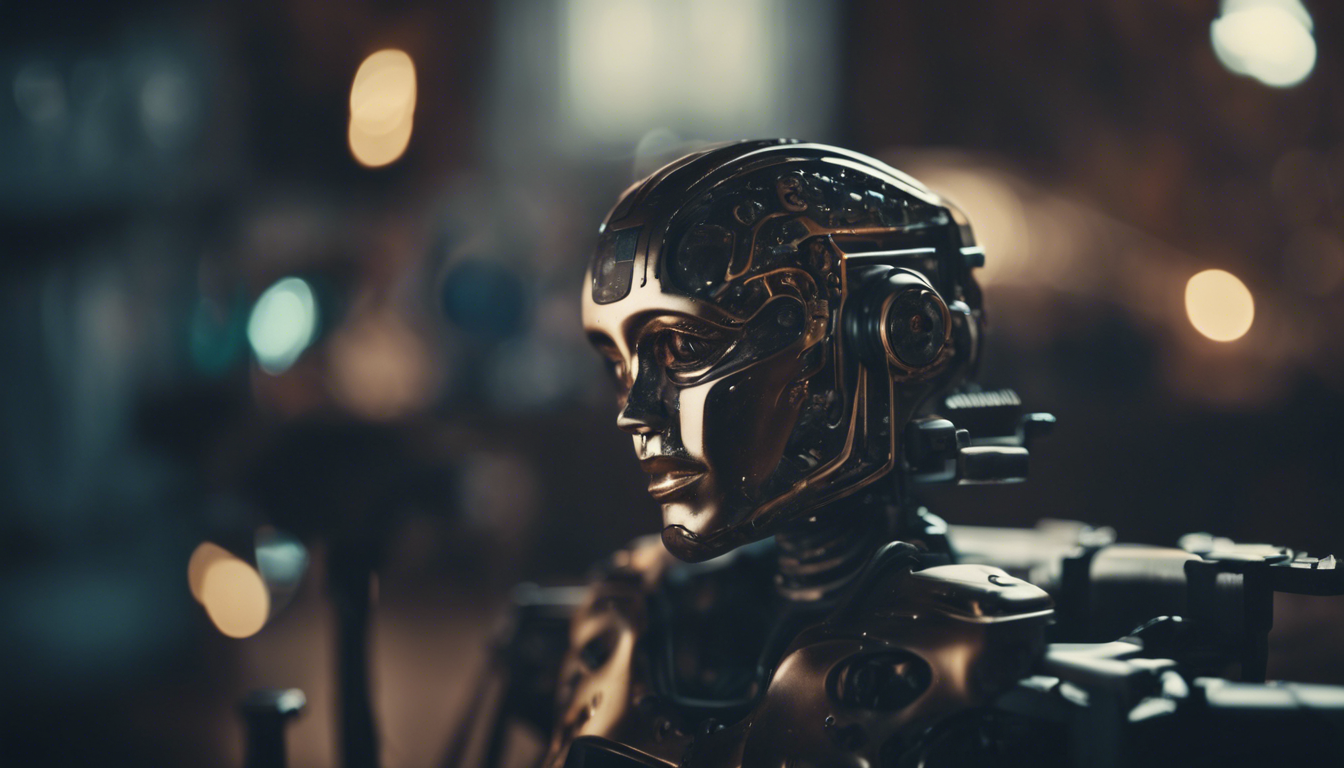Introduction to Artificial Intelligence
Artificial intelligence is revolutionizing technology by enabling machines to learn from data and make decisions without human intervention. Machine learning, a subset of AI, powers many applications such as recommendation systems, image recognition, and natural language processing. Automation, another key aspect of AI, is streamlining processes and increasing efficiency in various industries. Robotics and algorithms play vital roles in AI development, allowing machines to perform tasks that were once thought to be exclusive to humans.
Artificial Intelligence in Technology: A Brief Overview
AI technology is being used in a wide range of industries, from healthcare to finance to transportation. It is transforming the way businesses operate and improving the lives of individuals worldwide.
Machine Learning: The Backbone of AI Technology
Machine learning is the driving force behind AI technology, allowing machines to learn from data and make decisions without explicit programming. This enables machines to perform complex tasks and adapt to changing environments.
Automation in Technology: The Future of Efficiency
Automation is revolutionizing industries by streamlining processes and increasing efficiency. From self-driving cars to automated customer service, AI is transforming the way we work and live.
Robotics and Algorithms: Advancements in AI Programming
Robotics and algorithms are essential components of AI development, enabling machines to perform tasks with precision and accuracy. From autonomous drones to robotic surgery, AI is pushing the boundaries of what machines can achieve.
Advancements in Machine Learning
Artificial intelligence is revolutionizing technology through machine learning, allowing machines to learn from data and make decisions without human intervention. Automation and robotics are driven by intelligent algorithms, enabling machines to perform complex tasks with precision and accuracy. The future of programming lies in understanding machine learning, as advancements in technology are shaping the future of artificial intelligence.
Integration of Automation and Robotics
Artificial intelligence plays a key role in automation technology, enabling machines to perform tasks with efficiency and accuracy. Machine learning algorithms are essential for robotics programming, allowing machines to adapt to changing environments and perform complex tasks. Understanding AI is crucial for the future of technology, as integration of automation and robotics enhances efficiency and productivity in various industries.
Significance of Algorithms in AI
Algorithms are the backbone of AI technology, enabling machines to perform tasks with precision and accuracy. Machine learning is a key aspect of artificial intelligence, allowing machines to learn from data and make decisions without explicit programming. Programming algorithms drive automation in artificial intelligence, shaping the future of technology and pushing the boundaries of what machines can achieve.
Coding for Artificial Intelligence
Artificial intelligence is the future of technology, enabling machines to perform tasks with efficiency and accuracy. Machine learning is key in understanding AI, allowing machines to learn from data and make decisions without human intervention. Automation in robotics relies on AI algorithms, enabling machines to adapt to changing environments and perform complex tasks. Programming plays a crucial role in AI development, shaping the future of technology and pushing the boundaries of what machines can achieve.
Ethical implications of AI
Ethical concerns in Artificial Intelligence programming are becoming increasingly important as AI technology advances. Machine learning algorithms must be developed with ethical decision-making in mind to ensure that machines make decisions that align with human values. Automation in Technology raises questions about the balance between benefits and ethical implications, as machines take on more tasks previously performed by humans. The future of Robotics requires careful consideration of ethical implications as AI advancements continue to shape the way we interact with technology.
Obstacles in AI progress
Challenges in AI algorithms development include ensuring that machines make decisions that align with human values and ethical standards. The impact of automation on the job market is a concern, as machines take on tasks that were once performed by humans. Ethical concerns in AI programming must be addressed to ensure that machines make decisions that align with human values. The future of robotics and artificial intelligence requires careful consideration of ethical implications as technology continues to advance.
Predictions for the future of AI technology
The future of AI technology is bright and promising, with machine learning algorithms advancing rapidly. Automation in robotics will revolutionize various industries, increasing efficiency and productivity. Understanding AI technology is essential for future technological advancements, as machines continue to perform tasks that were once thought to be exclusive to humans.
Closing thoughts on AI in Technology
Machine learning is transforming technology through artificial intelligence, enabling machines to perform tasks with precision and accuracy. Algorithms drive automation in the future of robotics, increasing efficiency and productivity in various industries. Understanding AI is crucial for programming in technology, as machines continue to perform tasks that were once thought to be exclusive to humans. Artificial intelligence is shaping the future of technology, pushing the boundaries of what machines can achieve.
